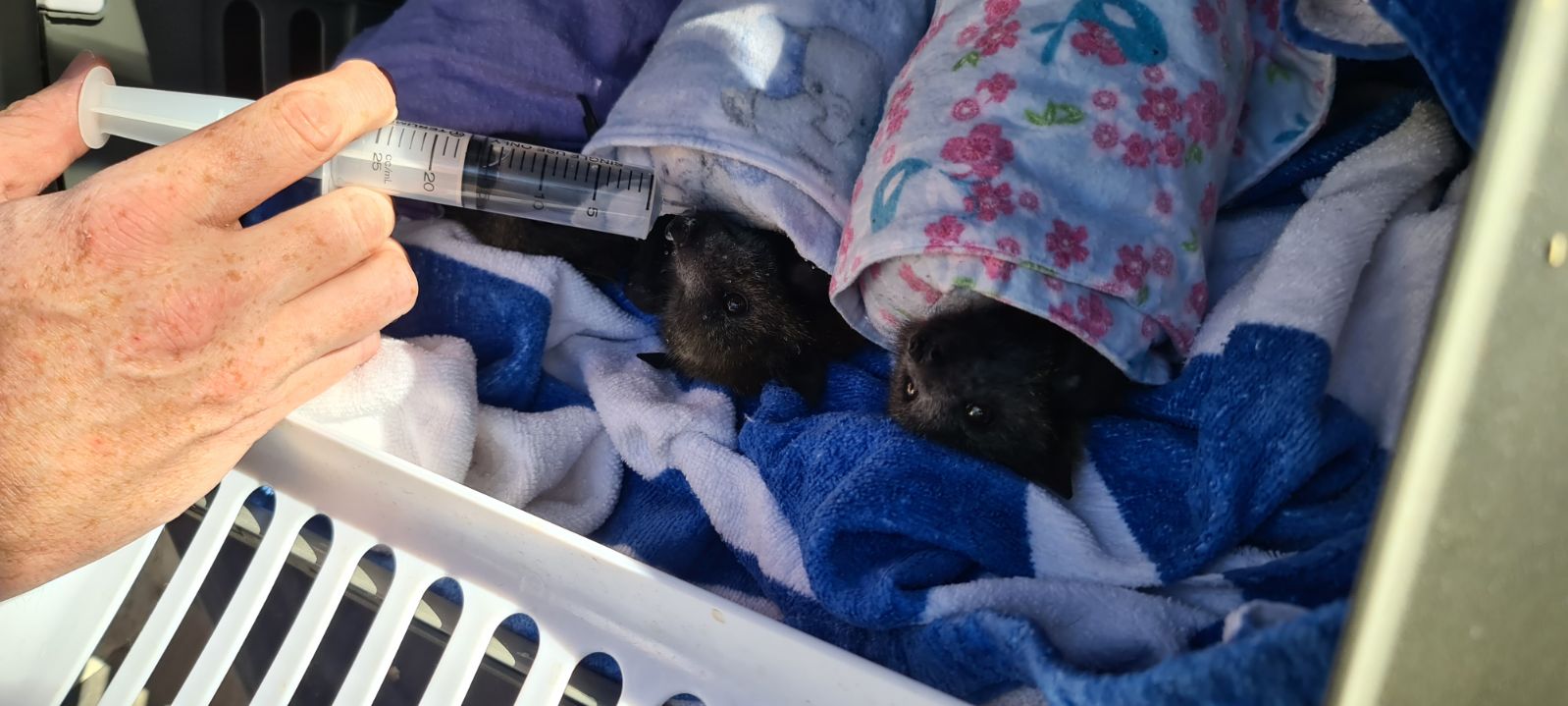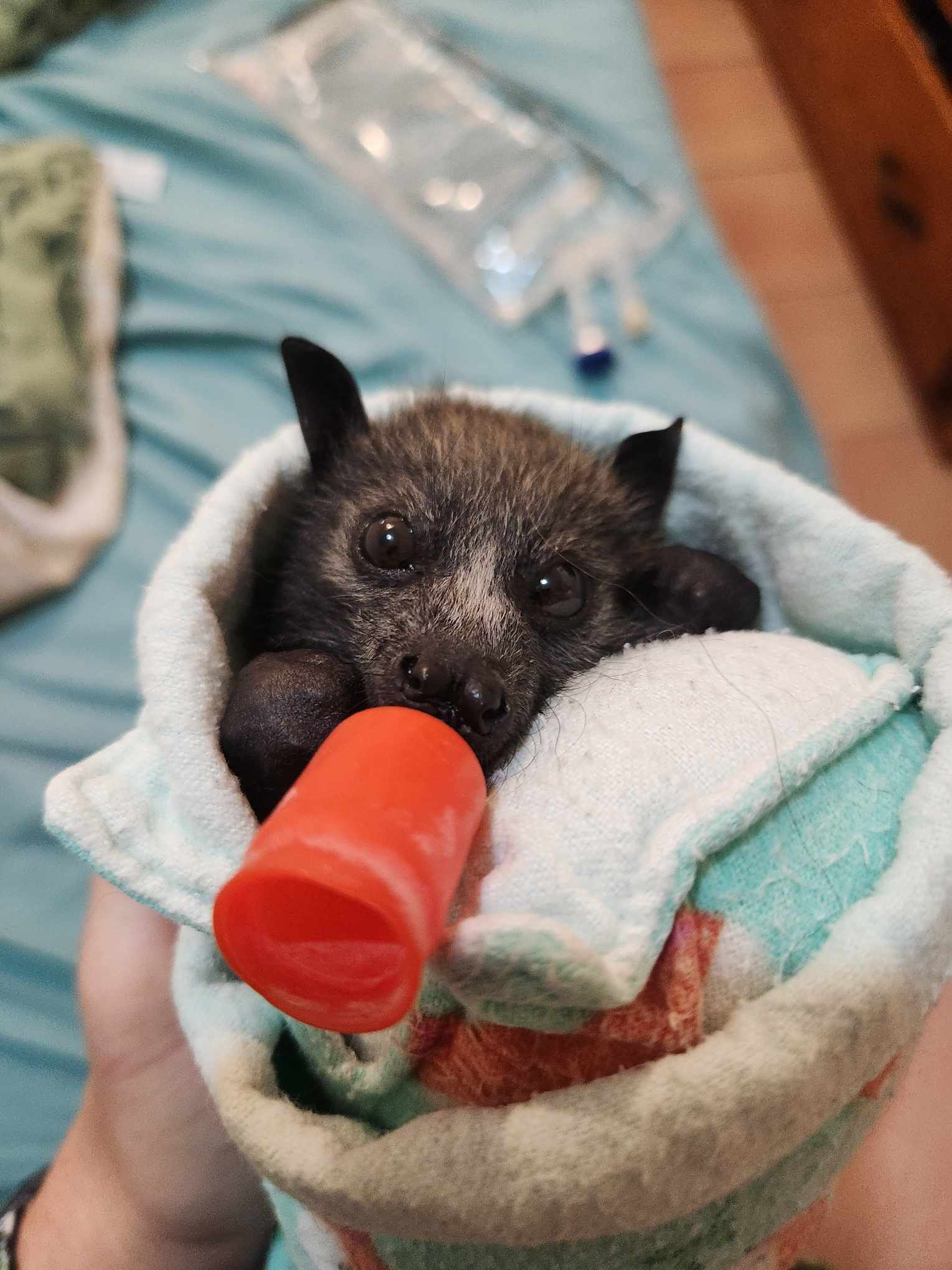
Special update on Flying Fox crisis
Tuesday, February 6, 2024
From November 2023 wildlife carers and ecologists began witnessing two disturbing events affecting flying foxes across Queensland, New South Wales and Victoria – starvation and heat stress.
These mass deaths were particularly alarming because flying foxes play such an important role in pollinating our remaining natural habitats. When our flying foxes disappear, many of the native trees that rely on their pollination and long-distance seed dispersal will go with them.
Providing aid and relief
The twin deadly events led to a massive influx of malnourished and heat-affected flying foxes needing urgent care. Orphaned pups in particular require intensive, specialist care and up to five feeds a day, putting a huge strain on wildlife carers struggling to attend to the rising numbers.

WIRES Disaster Relief Program, with the support of our partner Woolworths quickly distributed aid to flying fox carers in Victoria, New South Wales and Queensland, helping to provide urgent supplies, fresh fruit for rehabilitating adults, and specialist high protein formulas for malnourished pups in care. Many carers needed up to 45 kilos of fresh fruit a day – a massive food bill for any wildlife carer to sustain.
An on the ground response
WIRES provides specialist training and vaccinations for our flying fox and bat carers, and we alerted all specialist teams to the crisis. Our rescue communication platform also now provides weather forecasting alerts, so rescuers can be deployed very quickly when we know temperatures are about to spike.
What happens next?
With so many bats now in care, we are needing to make plans for their release – and are working closely with two councils to fund large scale pre-release creche enclosures in suitable sites. These pre-release enclosures need to be within close proximity of an established flying fox colony and that colony itself of course needs to be kept cool and protected for their ongoing survival.
To that end, WIRES Wildlife Vet Dr Tanya Bishop has been leading the way on specialised cooling interventions for wild populations and we're funding research into safeguarding flying fox populations in New South Wales and South Australia. It’s a complex response for a highly complex issue and your support is playing a critical role!
Other Articles
Grampian bushfires devastation
Interview with WIRES Training and Development
Orphaned Jess now ready for release
Our Wildlife Ambulance fleet is growing!
What a difference WIRES care makes
WIRES provides urgent triage for Flying Fox emergency
Displaced koala receives urgent care
National Parks and Wildlife Service warns of dangers of inappropriate feeding
WIRES funded platypus centre provides a lifeline of hope to declining species
